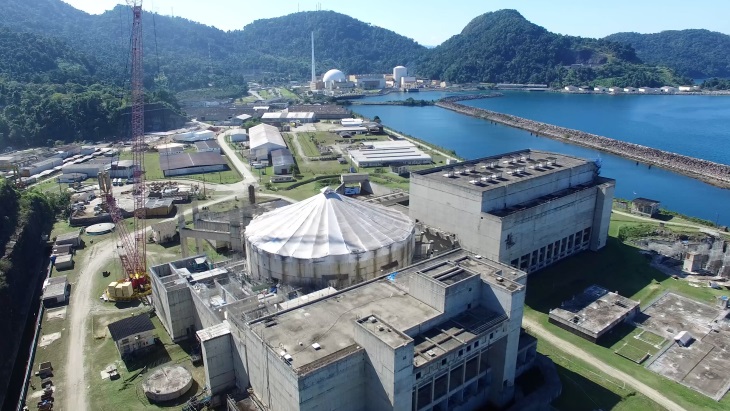Once approval of the winning bid has been received, the consortium must be invited to sign a contract for the project within 10 working days, and the "begin the mobilisation" of the Angra 3 site, so that construction work at the unit can be restarted this year, Eletronuclear said. Construction of the unit, halted for a second time in 2015, is 65% complete and Eletronuclear expects it to start operations in November 2026.
The so-called critical path acceleration plan for the unit includes completion of the concrete superstructure of the reactor building, and work on the electromechanical assembly, including the closure of the spherical steel containment structure and installation of the used fuel pool, the polar bridge and the semi-gantry crane, Eletronuclear said.
From 26 July, the bidder who expressed its intention to appeal against the tender result has five working days to present its case, Eletronuclear said, and "the others are subpoenaed to, if they wish, present counter-arguments in the same number of days". Eletronuclear will then have five working days to review the appeals.
Brazil's National Bank for Economic and Social Development said last month its had hired a consortium to structure the Angra 3 completion project. Contracting of the Angra Eurobras NES consortium - Tractebel Engineering Ltda, Tractebel Engineering SA and Grouped Entrepreneurs International SA - is part of the technical services that BNDES has been providing Eletronuclear since 2019.





_33198.jpg)
_730_93825.jpg)

_83147.jpg)






